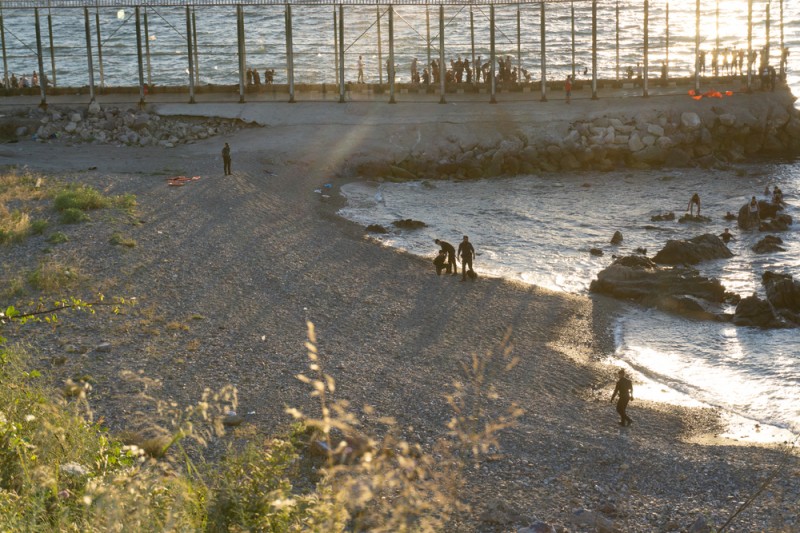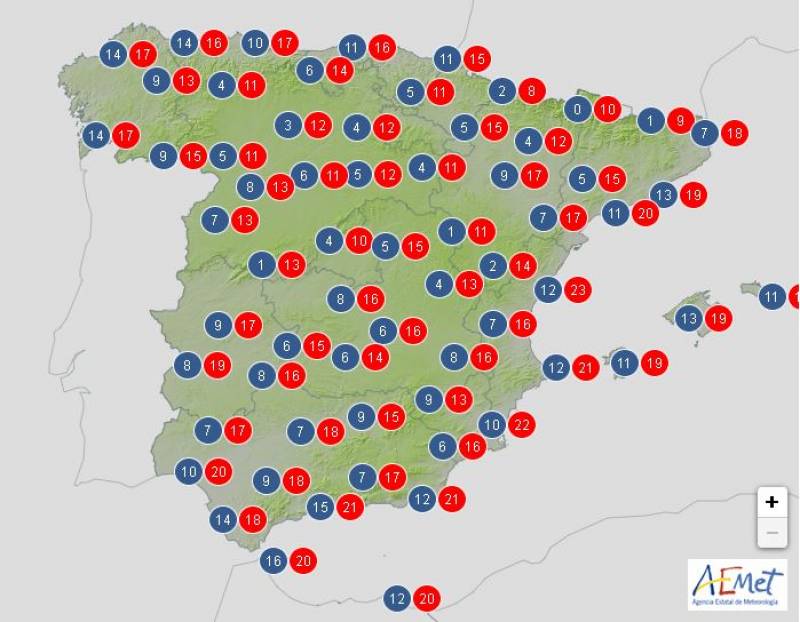

- EDITIONS:
 Spanish News Today
Spanish News Today
 Murcia Today
Murcia Today
 Alicante Today
Alicante Today
ARCHIVED - Ceuta will adapt breakwater to make it harder for illegal migrants to cross onto Spanish soil
The project involves removing all the sand from the breakwater at the end of Tarajal beach, on the border with Morocco, to stop migrants from entering around the end at low tide.

Plans have been drawn up for a series of measures at the Tarajal border breakwater to make it harder to get into Ceuta from Morocco, a Government Delegation representative has announced.
The project, the head of the Development department explained, aims to improve the functionality of the breakwater at the border between Spain and Morocco after some 12,000 migrants managed to get around the end of the structure and enter the city illegally in May this year.
The solution is quick and simple: all the sand will be removed from around the breakwater right up to the Guardia Civil post at the border, meaning that even at low tide it will be surrounded by water, making it much harder for migrants to get through.
However, the work will not be done until October so as not to disrupt the normal use of the beaches over the summer.
The problem of irregular migration via the two Spanish enclaves of Ceuta and Melilla on the African coast is an endless problem for the authorities, with irregular migrants deemed to be on Spanish soil and therefore subject to EU immigration laws once inside either of the two enclaves.
Although there are significant border fences surrounding both areas, assaults on the borders are frequent, often resulting in aggressive confrontations with Spanish border guards tasked at preventing illegal entry into Spanish territories.
The Moroccan authorities are often accused of not doing enough to prevent illegal migrants attempting to enter Spain and the Moroccan forces were accused of "passivity" during the recent mass invasion of Ceuta by more than 12,000 migrants, most of whom have now been repatriated. Morocco itself suffers from irregular migration from the Sub-Sahara, the result being encampments of illegal migrants within Morocco, waiting for a chance to attempt to enter Ceuta and Melilla or cross the sea to Spain in a small boat at the hands of organised criminal gangs, bringing irregular migrants to the Spanish mainland.
Relations between Spain and Morocco have been tense this summer and Morocco has cancelled the annual Paso del Estrecho in which millions of Moroccans resident throughout Europe return to Morocco to visit family and take their holidays in their home country.



























